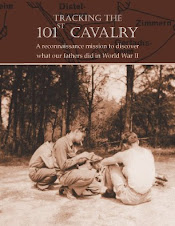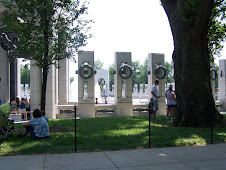
Left to right: James Paschal King, Ted Welch and James Paschal King, John Giggy before the Battle of Shiloh, and Ted Welch.
Memorial Day, originally called Decoration Day, is intended to honor those who died in service to their country, but we considered it a day to decorate the graves of all our family members. I didn’t make it to Redmond this year, so this is my tribute: a few words about the ancestors who fought to both establish this country and to stop its independence; to preserve the Union and to destroy it; and who fought for their country in Germany in World Wars I and II and the Pacific in World War II.
My ancestors fought on both sides of the Revolutionary War–Garretts for the Rebels and Welches for the Loyalists–and both sides of the Civil War. In fact, I had a bunch of great-great-grandfathers and great-great-uncles facing off against each other in the Civil War battles at Stones River, Shiloh, and Chickamauga.
The Garretts and Blacks enlisted in the Confederacy at Nashville, Tennessee. William Archer Garrett, my great-great-grandfather, fought with Murray’s Cavalry and Smith’s Cavalry, and his two brothers, James Paschal Garrett and Samuel Woodson Garrett, served with other Tennessee regiments.
Samuel Arnold Black, my Great-Grandmother Permelia’s brother, served in the 23rd Tennessee infantry. He was captured at Hatcher’s Run, Virginia, on April 2. 1865, sent to City Point, Virginia, then to Point Lookout, Maryland, where he spent the rest of the war.
His brothers Hamilton Black and Thomas Jefferson Black also fought for Tennessee. Thomas was captured in Lebanon, Kentucky, and exchanged for Union prisoners on the steamboat Mary Crane. He was once again taken prisoner, this time at Sheperdsville, Kentucky, and forwarded to Louisville Military Prison in Indianapolis. From there he was sent to Camp Morton, Indiana, and ultimately to Camp Douglas, Illinois. There he died on September 12 or 13 of chronic diarrhea as a prisoner of war. He is buried in grave #1349, Chicago City Cemetery.
Fighting for the North were my great-great-grandfathers, James Fletcher Skidgel, Jesse Pearce, and John Giggy. John Giggy enlisted for duty in LaGrange, Indiana, and was wounded at the battles of Shiloh and Chickamauga. At Shiloh, a limb knocked from a tree by artillery fire fell on his shoulder, and at Chickamauga, at bullet pierced his thigh.
James Fletcher’s father and my great-great-great-grandfather, Abraham Skidgel, mustered in on July 20, 1862, in Kendallville, Indiana. He was 58 years old, but gave his age as 44. His 19-year-old son, Abraham Jr., had been drafted, and Abraham Sr. wanted to look after him. Nancy, Abraham’s 59-year-old wife. died just two days after he left to enlist.
My great-uncle Earl Chamberlain served in World War I, as did Ernest Deering, the husband of my Aunt Irene, one of my dad’s sisters. Ernest Deering’s death in that war was just the first such loss to war that Aunt Irene had to endure.
The history of my dad’s service in World War II is told both in my blog and on the website for the 101st Cavalry, but also serving were at least two of Ted Welch's nephews: my cousins Milton Welch and James Paschal King (named, I assume, for the James Paschal Garrett who fought in the Civil War). James, who was the son of my Aunt Irene and her second husband, died on December 18, 1944, when a typhoon sent his ship, the USS Hull, to the bottom of the Pacific. The record of his military service ends with the words "Lost at sea."
I can’t put flowers on their graves this Memorial Day, but I can write out their names and hope they will not be forgotten.





1 comment:
Hi Melaney. My name is John Giggy. John Giggy who faught with the 44th Indiana Infantry is my Great Great Grandfather. Could you send me the picture you posted in your blog? I have a photo copy of a page in a book that has John and his brother Benjamin Giggy.
John Giggy
925-392-4177
jgiggy@kw.com
Post a Comment